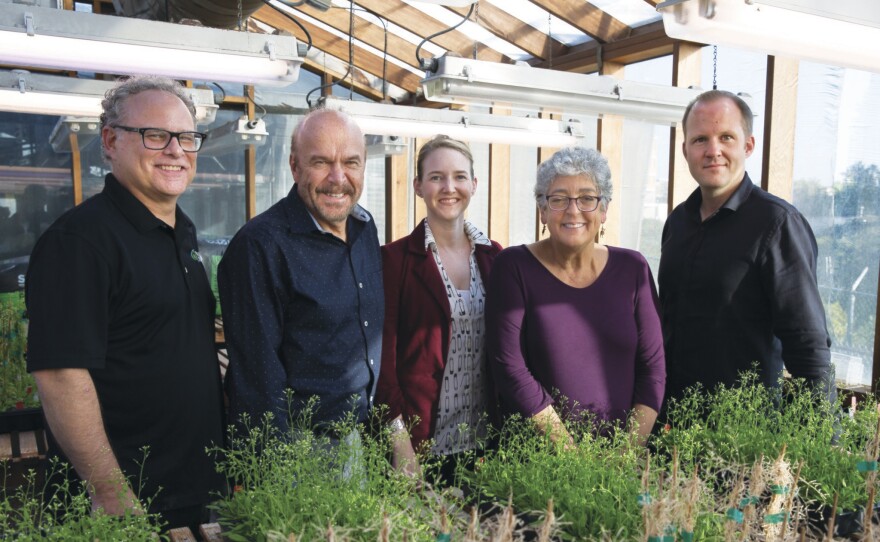Sometimes the most profound scientific discoveries start as the simplest ideas.
A team of plant scientists at The Salk Institute believes their simple idea of harnessing the power of plants to capture carbon dioxide from the atmosphere and store it in their roots could have a dramatic impact on efforts to combat climate change.
"What we'd like to do is generate plants that can draw down a significant portion of the excess (carbon dioxide) that are put into the atmosphere based on human activity," Salk professor Julie Law, a geneticist, said. "So we want to use the fact that plants, during the process of photosynthesis, take (carbon dioxide) from the atmosphere and generate plant biomass. And then the idea would be to generate plants that take that (carbon dioxide) and generate deeper more robust root systems that contain molecules that are resistant to degradation. So on a year-over-year basis, we would be essentially locking more carbon from the atmosphere into the soil."
Now a group of donors behind TED talks' "The Audacious Project" are giving Salk $35 million dollars to turn the idea into reality.
Salk professor Joanne Chory, who's leading this project, spoke about her team's work at a TED Talks event in Vancouver, British Columbia, Tuesday night.
"I have an incredible team and we all work together and this is something that we want to do because we have fun. And if you're only going to have five people and you're trying to save the planet, you better like each other because you're going to be spending a lot of time together," Chory said.
As part of the KPBS Climate Change Desk, Salk biochemist Joe Noel, Ph.D. and Julie Law, Ph.D., both members of the plant biology team for the Harnessing Plant Initiative, explain how the project will work on Midday Edition Wednesday.









